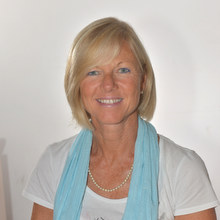
Maria Antonietta BALDO
- Position
- Senior Researcher
- Telephone
- 041 234 8646
-
toni@unive.it
- Scientific sector (SSD)
- Chimica analitica [CHEM-01/A]
- Website
-
www.unive.it/people/toni (personal record)
- Office
-
Department of Molecular Sciences and Nanosystems
Website: https://www.unive.it/dep.dsmn
Where: Campus scientifico via Torino
- Safety Role
-
Preposto di Laboratorio
Responsabile dell’Attività di Didattica e Ricerca in Laboratorio (RDRL)
Maria-Antonietta Baldo is associate professor in Analytical Chemistry at the Department of Molecular Sciences and Nanosystems of the Ca' Foscari University of Venice, and lecturer in the following fundamental subjects of the university:
- Analytical Chemistry for Cultural Heritage and Laboratory, Module 1, 2nd year, Bachelor's Degree in Science and Technology for Cultural Heritage (CT60)
- Instrumental Analytical Chemistry and Laboratory, module 2, 2nd year Bachelor's Degree in Chemistry and Sustainable Technologies (CT7)
Since 2011, she has been the Rector's Delegate of the 'Ca' Foscari University for Sports Activities
EDUCATION AND ACADEMIC TRAINING
1991: conferiment of the title of PhD in Chemical Sciences by the Minister of University and Scientific and Technological Research.
1987-1990: attendance of the PhD course in Chemical Sciences (curriculum: Analytical and Environmental Chemistry), University of Ferrara and Venice Consortium, advisor: prof. G.A. Mazzochin.
1984 -1986: winner of a specialization grant in environmental studies awarded by the Accademia Nazionale dei Lincei.
1983: degree in Industrial Chemistry at the University of Venice, with the score of 110/110 cum laude.
SCIENTIFIC ACTIVITY
Maria-Antonietta Baldo has developed her scientific activity mainly in the electroanalytical sector, with particular regard to the development of advanced electrode devices and their application in various problems of analytical chemistry. The studies focus on the following main topics:
- Development of microsensors and analysis methodologies for the determination of analytes present at low concentrations in real matrices, exploiting electroanalytical techniques with original criteria. Particular attention was paid to applications in the food and environmental fields, focusing above all on innovative voltammetric investigations conducted in natural samples without pre-treatment of the matrix and without the addition of support electrolytes, and on the "in situ" study of the electrochemical processes of components electroactive natural or present as additives or contaminants.
- Investigations on the influence of different types of mass transport on voltammetric responses obtained using microelectrodes of different electrode materials (e.g. Pt, Hg, C), geometry (e.g.: disk, sphere segment) and dimensions; connections with the various analytical aspects.
- Development and application of electronic voltammetric "tongues", by using also chemiometric and “blind analysis” procedures, for the characterization and discrimination of food samples.
- Use of the SECM (Scanning Electrochemical Microscopy) technique for the study with high spatial resolution of: a- chemical-physical processes and phenomena at the solid/solution interface; b- characterization of new electrode systems.
- Development of new analytical approaches, based on the use and optimization of solid state electrochemical techniques, for the characterization and analysis of inorganic pigments used in works of art.
- Study of the release of Ag+ ions in food matrices by materials used in food packaging and containing Ag nanoparticles as antimicrobial agents.
-Preliminary studies on the behavior of "green" corrosion inhibitors to be used as protectors of metal artefacts of interest in the Cultural Heritage field
The scientific activity carried out so far by Prof. Baldo has resulted in the publication of 82 articles in international specialized journals, and the presentation of over 100 communications at national and international congresses. As part of her scientific activity, Dr. Baldo has always collaborated with various research groups operating both in Italy and abroad, and participated in national and European research projects.
The information above has been uploaded on Ca' Foscari website directly by the person this webpage refers to. The correctness and the truthfulness of the published information are the responsibility of the relevant person.

